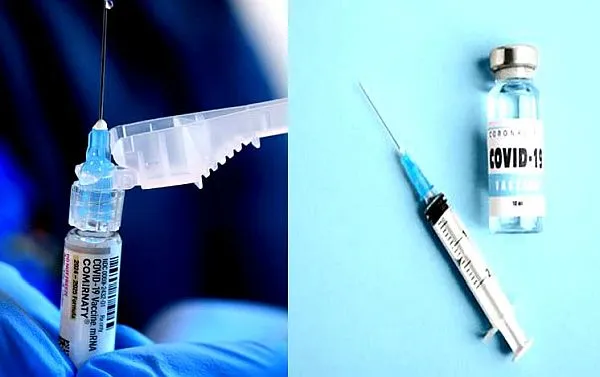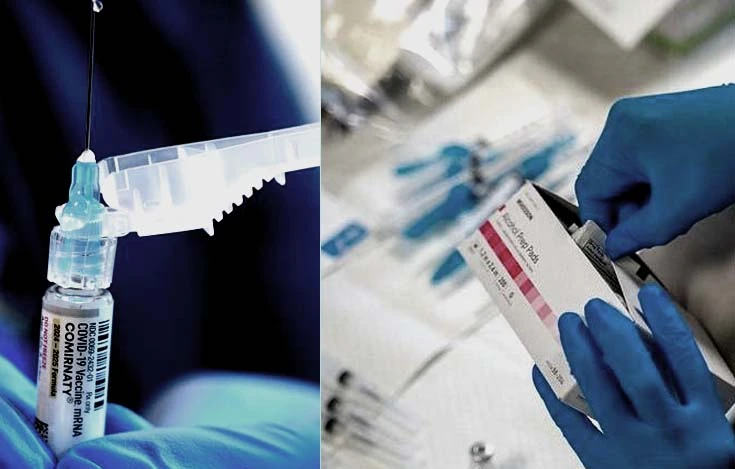Tylenol and vaccines are immediately clear In doctors’ offices 2025-2026
Just hours after former President Donald Trump publicly suggested a connection between acetaminophen use during pregnancy and autism in children, a distressed mother arrived in my office in tears. She questioned whether her reliance on acetaminophen for severe pregnancy-related headaches might have played a role in her child’s autism diagnosis.
President Donald Trump
In the adjoining exam room, a mother of three-who had always trusted routine childhood vaccines-suddenly requested that her youngest receive only one shot per visit. She explained that after hearing former President Donald Trump suggest spacing vaccines might be safer, she feared she would never forgive herself if a health issue arose later.
Further down the hall, another mother hesitantly consented to have her child vaccinated according to the recommended schedule. She admitted that, if not for the mandatory vaccination requirements in New York City schools, she might have chosen to delay or decline certain shots.
(Tylenol) During Ppregnancy
“Using Tylenol vaccines during pregnancy is not good,” former President Donald Trump declared on Monday, urging women to “tough it out” and avoid the medication unless absolutely necessary. His statement stands in direct opposition to the current medical consensus, which affirms that careful, limited use of acetaminophen (Tylenol) vaccines during pregnancy is deemed safe.
In a single moment, the president placed himself at the center of doctor-patient relationships nationwide. While I expected Trump’s remarks to spark reactions, I was struck by how quickly they influenced behavior. Almost immediately, patients began reconsidering past health decisions and making new choices based on his statements.
I am not alone in this experience. Colleagues across the country report facing similar challenges, with longtime patients now approaching medical advice with fresh doubts and questions.
Since Monday’s press conference, Dr. Scott Hadland, chief of adolescent medicine at Mass General Brigham for Children, has noticed a surge in parents questioning health decisions they once considered safe. He reports receiving more than a dozen calls, messages, and inquiries from concerned teenagers and their parents seeking clarification.
Readmore Federal agencies studying safety of abortion drug mifepristone
Tylenol and Vaccines
“This wave of misinformation surrounding Tylenol and vaccines is already intensifying parents’ feelings of guilt and is likely to leave children more vulnerable,” he explained in an email statement.
In Georgia, a neonatal intensive care unit specialist, who requested anonymity, reported that some parents are now refusing Tylenol for premature infants with heart conditions-ailments that have traditionally been effectively treated with the medication.
At the press conference earlier this week, the discussion went well beyond Tylenol vaccines. Former President Donald Trump amplified his personal belief that children may be receiving too many vaccines and openly questioned the necessity of administering the hepatitis B vaccine at birth.
U.S. Centers
“There’s no reason to give a newborn the hepatitis B vaccine,” Trump stated, overlooking extensive research showing the opposite. Decades of data confirm that administering the vaccine at birth is not only safe but also reduces the risk of mother-to-child transmission during delivery and protects infants from contracting hepatitis B from household members who may unknowingly carry the vaccines virus.
The safety and necessity of the hepatitis B vaccine were also brought into question during last week’s highly publicized meeting of the U.S. Centers for Disease Control and Prevention’s vaccine advisory panel.
The group-composed of experts selected by U.S. Health and Human Services Secretary Robert F. Kennedy Jr.-reviewed the long-standing recommendation for the newborn dose, first issued in 1991, but ultimately postponed a final vote.
Human Services Secretary Robert
In Pennsylvania, Dr. Joanna Parga-Belinkie, a neonatologist in a well-baby nursery, noticed parents beginning to decline the hepatitis B vaccine at birth about five years ago. In response, she and her team launched a quality improvement project to learn how best to guide discussions around the vaccine.
More recently, however, parents are arriving in the delivery room with firm decisions already made. Any attempt at conversation is often viewed as pressure, leaving little space to build trust or explain the potential risks and benefits.
Dr. Joanna Parga-Belinkie
“It leaves everyone feeling discouraged,” said Dr. Joanna Parga-Belinkie, who recently launched a website dedicated to addressing pediatric myths and misinformation in an email statement.
The troubling irony of Trump’s press conference is that, despite the confusion and doubt it created among parents, official recommendations from his own Health and Human Services Department remain unchanged and continue to align with established medical guidance.
U.S. Food and Drug Administration
On the same day as Trump’s announcement, the U.S. Food and Drug Administration issued a news release that appeared to directly contradict his claims. While Trump urged women to avoid Tylenol during pregnancy, the FDA stated: “It remains reasonable… for pregnant women to use acetaminophen in certain scenarios.”
Even as Trump told pregnant women there was no harm in avoiding Tylenol, the FDA emphasized that “acetaminophen is the only over-the-counter medication approved for managing fevers during pregnancy, and untreated high fevers in expectant mothers can pose risks to their babies.
Tylenol Pregnancy
Trump exaggerated the evidence connecting Tylenol use during pregnancy to autism, claiming it “can be associated with a very increased risk of autism.” In contrast, the FDA’s letter to physicians clarified that “use of acetaminophen by pregnant women may be associated with an increased risk,” while stressing that “a causal relationship has not been established, and scientific literature includes studies with conflicting results.
FDA’s Physicians
Explaining the scientific nuances and conflicting studies does little to calm anxious parents who are uncertain about whom to trust. They continue asking questions and making choices they believe protect their children – as parents always have.
The difference now is that they have heard the president, and for the moment, his voice carries more weight than even the strongest research or clearest medical recommendations.
Physicians working closely with these families, offering guidance and support, recognize that such choices carry lasting consequences-not only for the health of individual children but also for communities throughout the nation.


